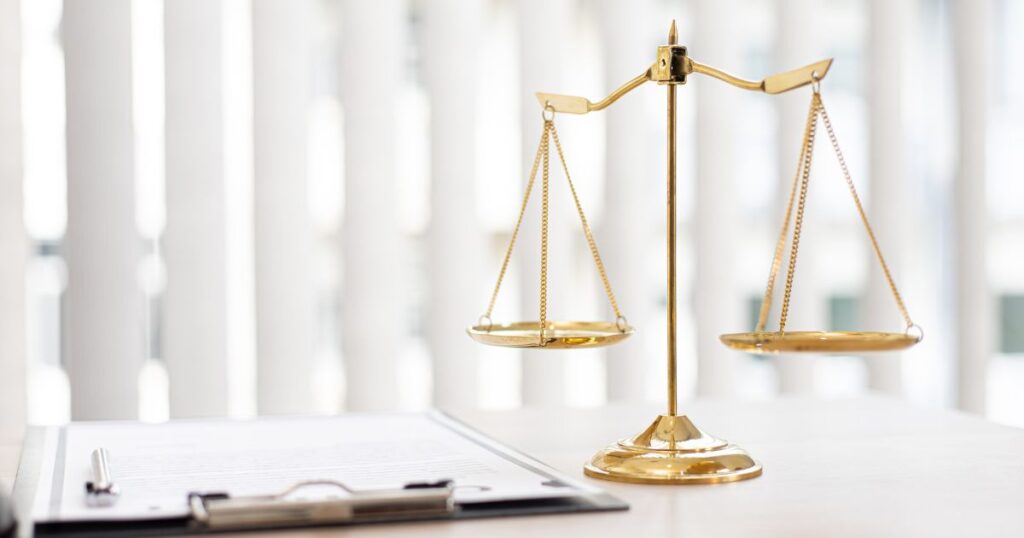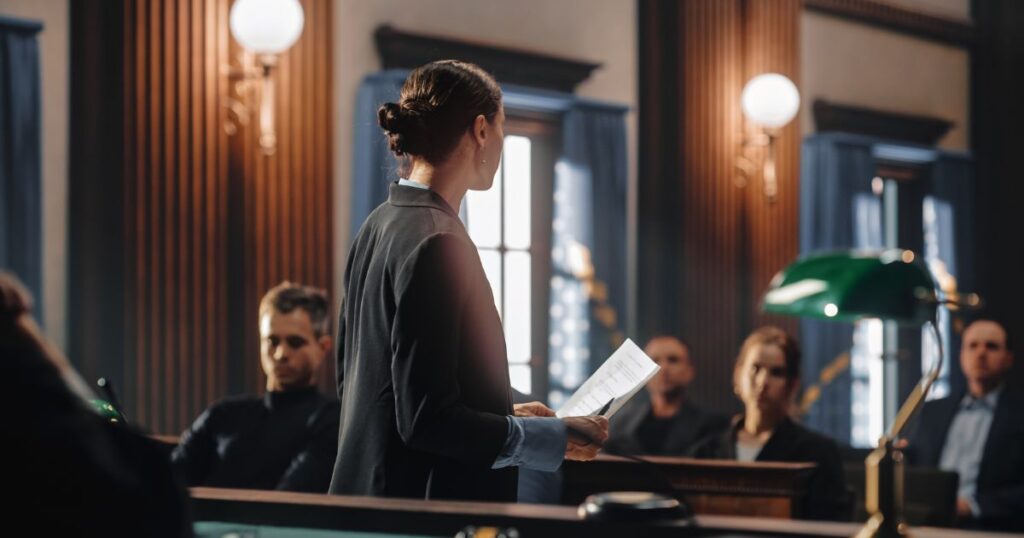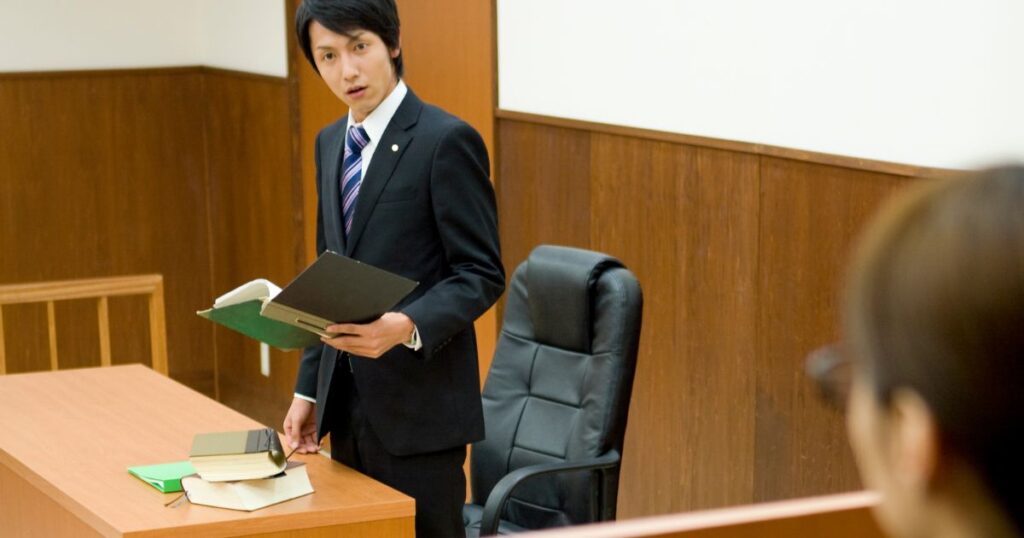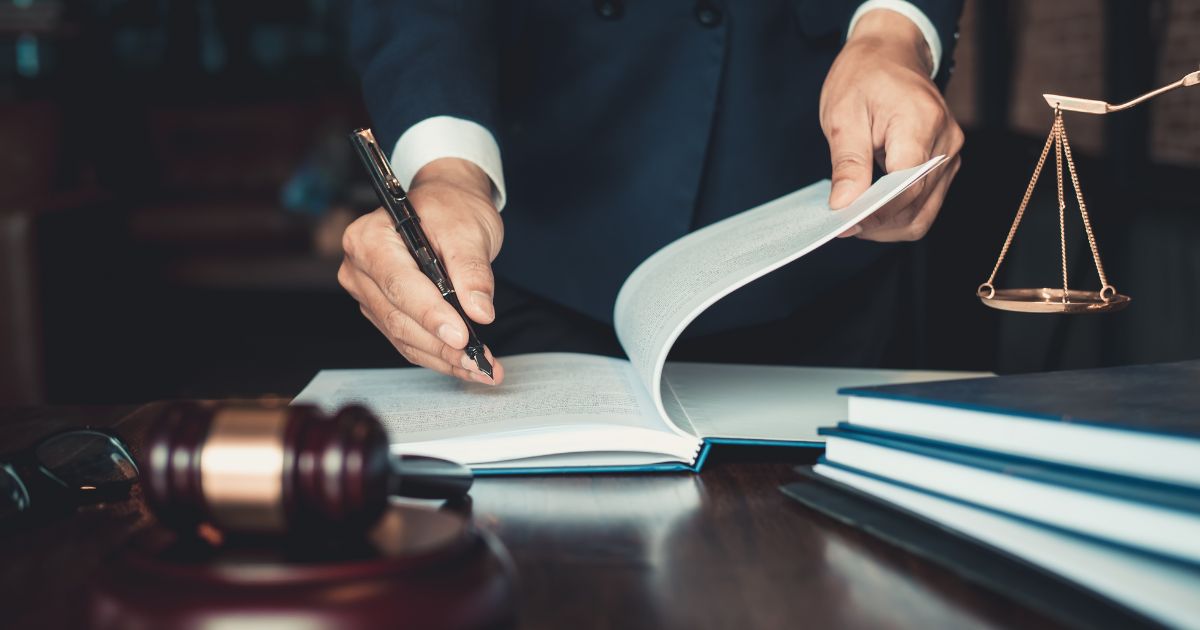Legal Practice: A Kaleidoscope of Career Options with a Law Degree
Table of Contents
Legal Practice – An Overview
| Career Option | Brief Description |
|---|---|
| Attorney/Lawyer | Advocates and advisors to their clients on a range of legal matters. |
| Paralegal | Assists attorneys in delivering legal services. |
| Legal Secretary | Provides administrative support to lawyers and legal executives. |
| Law Clerk | Assists judges in making legal decisions. |
| Mediator | Facilitates negotiation and conflict resolution through dialogue. |
| Arbitrator | A neutral third-party appointed to resolve disputes. |
| Public Defender | Represents defendants who cannot afford an attorney in criminal cases. |
| Prosecutor | Represents the state in criminal prosecutions. |
| Judge | Presides over court proceedings, either alone or as a part of a panel of judges. |
| Magistrate | Deals with less serious criminal cases, like minor thefts, and minor civil cases, like family law disputes. |
“Legal Practice” isn’t just about courtroom dramas and stern-faced attorneys. As a first-year law student, I’m discovering it’s a vibrant symphony of diverse roles. From paralegals to magistrates, each plays a unique tune. Curious? Let’s explore together!

Introduction
| Key Takeaways |
|---|
| A law degree is versatile and multi-functional, opening up a variety of career paths. |
| Being a lawyer is just one of many career options for law graduates. |
The first duty of society is justice, as Alexander Hamilton once said. And a law degree equips you with the tools to uphold this duty in a multitude of ways, far beyond the traditional path of becoming a lawyer. It’s a passport to a world of opportunities, a key that opens doors to diverse roles within the legal field and beyond.
The first duty of society is justice.
Alexander Hamilton
Being a lawyer is a noble and exciting profession. The thrill of the courtroom, the intellectual challenge of crafting a compelling argument, the satisfaction of advocating for your client – these are experiences that are hard to match. But the legal profession is a vast and varied landscape, and being a lawyer is just one path that winds through it.
In fact, a law degree can lead you down a multitude of paths. From the analytical rigor of a law clerk to the negotiation finesse of a mediator, from the administrative prowess of a legal secretary to the decision-making authority of a judge – each role is unique, each role is vital, and each role contributes to the grand tapestry of justice.
And it’s not just within the legal field that a law degree shines. Its value extends into the realms of business, politics, academia, and non-profit organizations. The skills you acquire – critical thinking, problem-solving, communication, ethics, and more – are universally sought after, making a law degree a valuable asset in virtually any field.
So, buckle up, folks, because we’re about to dive deep into the world of legal practice and explore the myriad of career paths that a law degree can unlock. We’ll venture beyond the well-trodden path and explore the lesser-known, but equally rewarding, careers that you can pursue with a law degree. It’s going to be an exciting journey, so let’s get started!
Skills Required in Legal Practice
| Career Option | Key Skills |
|---|---|
| Attorney/Lawyer | Research, analytical thinking, negotiation, persuasion |
| Paralegal | Organizational skills, research, writing |
| Legal Secretary | Administrative skills, attention to detail, communication |
| Law Clerk | Research, writing, analytical thinking |
| Mediator | Communication, negotiation, problem-solving |
| Arbitrator | Decision-making, impartiality, integrity |
| Public Defender | Advocacy, empathy, perseverance |
| Prosecutor | Analytical thinking, public speaking, negotiation |
| Judge | Decision-making, impartiality, knowledge of the law |
| Magistrate | Decision-making, public speaking, knowledge of the law |

Attorney/Lawyer
| Key Takeaways |
|---|
| Attorneys advocate for their clients using a variety of skills, including analytical thinking and negotiation. |
| The role extends beyond arguing in court and involves crafting strategies for the best outcome for clients. |
When you hear the word ‘attorney’, what comes to mind? A stern-faced individual in a sharp suit, arguing passionately in a courtroom? Well, that’s just a Hollywood stereotype. In reality, being an attorney is like being a master craftsman, meticulously crafting arguments and strategies to advocate for their clients.
The role of an attorney is multifaceted and extends far beyond the courtroom. It’s a profession that requires a blend of intellectual rigor, strategic thinking, and interpersonal skills. Attorneys are not just advocates; they are advisors, negotiators, and problem solvers.
Attorneys come in many forms, each specializing in a unique area of law. There are corporate attorneys who navigate the complex world of business law, ensuring that companies operate within the legal framework. There are criminal attorneys who either prosecute or defend individuals accused of crimes, upholding the principles of justice. There are family attorneys who handle sensitive issues like divorce and child custody, providing guidance during challenging times. And there are many more, each with their own area of expertise.
Being an attorney is not just about arguing in court. It’s about having a toolbox of skills, from analytical thinking to negotiation, and knowing when to use each tool to achieve the best outcome for your client. It’s about understanding the law and applying it creatively to solve complex problems. It’s about counseling clients, helping them understand their legal rights and options, and guiding them through the often confusing legal process.
Moreover, being an attorney is about upholding the principles of justice and fairness. It’s about advocating for those who cannot advocate for themselves, ensuring that every voice is heard, and every right is protected. It’s a profession that carries great responsibility, but also great reward.
So, while the Hollywood image of a lawyer might be exciting, the reality is even more so. It’s a profession that challenges you intellectually, pushes you to continually learn and grow, and gives you the opportunity to make a real difference in people’s lives. It’s not just a job; it’s a calling.
Journey into Justice: The Role of an Attorney/Lawyer
Top 5 Benefits of Being an Attorney/Lawyer
- High earning potential.
- Opportunity to help others.
- Intellectual challenges.
- Diverse practice areas.
- Prestige and respect in society.

Paralegal
| Key Takeaways |
|---|
| Paralegals provide essential support in law firms, ensuring smooth operation. |
| They play a significant role in the functioning of a law firm, akin to an engine in a car. |
Paralegals may not be in the limelight, but their role is crucial in the successful functioning of a law firm. They are the backbone of the legal system, providing the essential support that keeps the wheels of justice turning.
As a first-year law student, I was surprised to learn about the significant role that paralegals play in a law firm. They provide essential support, ensuring that everything runs smoothly behind the scenes. Without them, the law firm would be like a car without an engine, unable to move forward.
Paralegals are involved in nearly every aspect of the legal process. They assist attorneys with case preparation, which can include everything from legal research to drafting legal documents. They are often responsible for organizing and managing large amounts of information, ensuring that crucial details are easily accessible when needed.
In addition to these tasks, paralegals often interact with clients, witnesses, and other legal professionals. They may conduct interviews, handle scheduling, and perform other administrative tasks that keep a law firm running smoothly. Their role requires a deep understanding of legal concepts and procedures, strong organizational skills, and excellent communication abilities.
But the role of a paralegal extends beyond these practical tasks. Paralegals are problem solvers. They are often called upon to find creative solutions to complex issues, using their knowledge of the law and their analytical skills to help attorneys build the strongest possible case.
Moreover, paralegals are advocates for justice. They work tirelessly to ensure that every client receives the best possible representation, contributing to the pursuit of justice in their own unique way.
So, while they may not stand in the courtroom or argue cases before a judge, paralegals are an integral part of the legal team. Their work is vital to the success of a law firm and to the fair and efficient functioning of our legal system. They may be behind the scenes, but without them, the stage could not be set for the pursuit of justice.
Journey into the Legal Labyrinth: A Peek into the Paralegal Profession
Top 5 Responsibilities of a Paralegal
- Conducting legal research.
- Drafting legal documents.
- Organizing and maintaining files.
- Assisting in preparation for trials.
- Communicating with clients.
Education and Qualifications for Legal Practice
| Career Option | Education/Qualifications |
|---|---|
| Attorney/Lawyer | Law Degree, Bar Exam |
| Paralegal | Associate’s Degree or Certificate in Paralegal Studies |
| Legal Secretary | High School Diploma, Legal Secretary Certificate |
| Law Clerk | Law Degree |
| Mediator | Bachelor’s Degree, Mediation Training |
| Arbitrator | Bachelor’s Degree, Arbitration Training |
| Public Defender | Law Degree, Bar Exam |
| Prosecutor | Law Degree, Bar Exam |
| Judge | Law Degree, Significant Legal Experience |
| Magistrate | Law Degree, Significant Legal Experience |

Legal Secretary
| Key Takeaways |
|---|
| Legal secretaries coordinate various tasks within a law firm, similar to a conductor in an orchestra. |
| They handle client communications, manage appointments, and perform administrative tasks. |
Have you ever tried juggling? It’s not easy, right? Now, imagine juggling phone calls, appointments, and legal documents all at the same time. That’s what a day in the life of a legal secretary looks like.
A legal secretary is akin to the conductor of an orchestra, coordinating all the different parts to create a harmonious symphony. They ensure that everyone is in sync and that everything is in its right place. They are the linchpins that hold the legal office together, the vital cogs that keep the machine running smoothly.
Legal secretaries are the first point of contact in a law firm, often handling client communications and managing appointments. They are the friendly faces that greet clients, the reassuring voices on the phone, the ones who make clients feel heard and valued. But their role goes far beyond reception duties.
They are also responsible for a wide range of administrative tasks, from filing and organizing legal documents to drafting correspondence and maintaining databases. They need to be highly organized, detail-oriented, and able to multitask effectively. They must also have a solid understanding of legal terminology and procedures to handle these tasks efficiently.
But the role of a legal secretary extends beyond these practical tasks. They are the glue that holds the legal team together. They facilitate communication between attorneys, paralegals, and clients, ensuring that everyone is on the same page. They manage schedules, coordinate meetings, and ensure that deadlines are met. In essence, they keep the law firm on track and running smoothly.
Moreover, legal secretaries play a crucial role in maintaining the professionalism and integrity of the law firm. They handle sensitive information with discretion and uphold the highest standards of confidentiality. They contribute to the firm’s reputation for excellence and reliability.
So, while they may not be in the courtroom arguing cases, legal secretaries play an indispensable role in the legal process. They are the gears that keep the legal machine running, the conductors who ensure that the symphony of legal practice plays on without a hitch. They may operate behind the scenes, but their contribution to the smooth running of a law firm is invaluable.
Legal Secretary: The Powerhouse Behind Every Successul Legal Team
Top 5 Skills of a Legal Secretary
- Excellent typing skills.
- Knowledge of legal terminology.
- Strong communication skills.
- Ability to multitask.
- High level of organization.

Law Clerk
| Key Takeaways |
|---|
| Law clerks assist judges by conducting legal research and preparing legal documents. |
| They play a significant role in shaping legal decisions. |
Here’s a little secret that most people don’t know. Law clerks play a significant role in shaping legal decisions. They assist judges by conducting legal research and preparing legal documents, providing valuable insights that influence the judge’s decision.
Law clerks are akin to the architects of the legal world. They lay the groundwork for legal decisions, constructing solid foundations through meticulous research and analysis. They delve into the depths of legal texts, case law, and statutes, extracting the essential information that forms the basis of a judge’s ruling.
Their role is not just about research, though. Law clerks are also responsible for drafting a variety of legal documents, including memoranda, opinions, and orders. This requires a deep understanding of the law, exceptional writing skills, and the ability to present complex information clearly and concisely. Their words can have a profound impact, shaping the interpretation of the law and influencing the outcome of legal cases.
But the role of a law clerk extends beyond these tasks. They are also advisors, providing judges with valuable insights and perspectives. They engage in intellectual discussions with judges, challenging their views and pushing them to consider different angles. Their input can be instrumental in guiding a judge’s decision-making process, ensuring that all aspects of a case are considered.
Moreover, law clerks play a crucial role in ensuring the efficiency of the judicial process. They manage a judge’s caseload, prioritizing cases and ensuring that all necessary paperwork is in order. They are the gatekeepers of the judicial process, ensuring that everything runs smoothly and efficiently.
So, while they may not wear the robe or wield the gavel, law clerks are an integral part of the judicial system. They are the architects who design the blueprint for legal decisions, the advisors who provide valuable insights, and the managers who ensure the smooth running of the judicial process. Their role is vital to the functioning of our justice system, and their contribution is invaluable.
Law Clerk: The Backstage Maestro of the Legal Field
Top 5 Roles of a Law Clerk
- Researching legal issues.
- Drafting memos and opinions.
- Assisting judges during trials.
- Reviewing briefs.
- Preparing case summaries.

Mediator
| Key Takeaways |
|---|
| Mediators guide parties in a dispute towards a peaceful resolution. |
| They help parties identify their needs and interests, explore potential solutions, and negotiate agreements. |
Ever watched a sports game and noticed the referee in the middle, maintaining fairness and resolving disputes? That’s what a mediator does, but in the legal world.
Mediators are like the navigators of the legal seas, steering the ship of dispute resolution through the turbulent waters of conflict. They guide the parties involved towards a peaceful resolution, helping them navigate their differences and find common ground.
I’m fascinated by the role of mediators in resolving disputes. It’s like watching a tangled knot being slowly and carefully untied, each thread representing a different issue that needs to be addressed. It’s a delicate process, requiring patience, empathy, and a deep understanding of human nature.
Mediators are not just facilitators, though. They are also problem solvers. They help parties identify their needs and interests, explore potential solutions, and negotiate agreements that are mutually satisfactory. This requires a unique set of skills, including active listening, effective communication, and creative thinking.
But the role of a mediator extends beyond these tasks. They are also educators, helping parties understand the mediation process and their options for resolution. They provide a safe and neutral environment where parties can express their views, vent their frustrations, and explore their differences without fear of judgment or retaliation.
Moreover, mediators play a crucial role in preserving relationships. Unlike litigation, which can be adversarial and damaging to relationships, mediation is a collaborative process that encourages mutual respect and understanding. By helping parties resolve their disputes amicably, mediators can help preserve relationships and promote harmony.
So, while they may not be in the courtroom or drafting legal documents, mediators play a vital role in the legal system. They are the navigators who guide parties towards peaceful resolution, the problem solvers who untangle the knots of conflict, and the educators who promote understanding and collaboration. Their work is essential to the promotion of peace and the prevention of unnecessary litigation.
Mediator: The Peacekeeper of Legal Practice

Arbitrator
| Key Takeaways |
|---|
| Arbitrators preside over arbitration proceedings and make decisions based on the evidence presented. |
| They play a crucial role in providing a more accessible and efficient avenue for dispute resolution. |
Being an arbitrator is like being a judge in a cooking competition. You listen to both sides, consider the evidence, and make a decision. But instead of judging dishes, you’re judging legal disputes.
Arbitrators are the decision-makers of the alternative dispute resolution world. They preside over arbitration proceedings, a process that is often chosen for its efficiency, flexibility, and confidentiality compared to traditional court litigation. Like chefs in a kitchen, arbitrators must be adept at handling the heat of disputes, skillfully managing the process to deliver a fair and just result.
In the realm of arbitration, the parties involved present their case to the arbitrator, much like chefs presenting their dishes to a judge. The arbitrator listens to the arguments, reviews the evidence, and considers the relevant laws and regulations. They must be impartial, fair, and thorough, ensuring that all parties have an equal opportunity to present their case.
But the role of an arbitrator extends beyond simply listening and deciding. They also have the responsibility of managing the arbitration process. This can involve setting timelines, determining the rules of evidence, and making procedural decisions. It’s a role that requires a deep understanding of the law, excellent decision-making skills, and the ability to manage complex processes.
Moreover, arbitrators play a crucial role in providing a more accessible and efficient avenue for dispute resolution. Court litigation can be costly, time-consuming, and intimidating. Arbitration, on the other hand, offers a more streamlined and less formal alternative. By serving as arbitrators, legal professionals can help make dispute resolution more accessible to individuals and businesses alike.
So, while they may not be in a courtroom or wearing a judge’s robe, arbitrators play a pivotal role in the legal system. They are the decision-makers who deliver justice in the realm of alternative dispute resolution, the managers who ensure the smooth running of arbitration proceedings, and the champions of accessible and efficient dispute resolution. Their work is vital to the fair and efficient resolution of disputes, and their contribution to the legal system is significant.
Arbitrator: The Chess Masters of Legal Practice

Public Defender
| Key Takeaways |
|---|
| Public defenders represent those who cannot afford private legal representation. |
| They uphold the principle of innocence until proven guilty and work to ensure a fair trial for all. |
Have you ever watched a superhero movie and admired the hero for defending those who can’t defend themselves? That’s what a public defender does, but in real life.
Public defenders are the guardians of justice in the legal system. They stand in the gap for those who cannot afford private legal representation, ensuring that everyone, regardless of their financial situation, has access to a fair trial. They are the embodiment of the principle that every person is innocent until proven guilty, and they work tirelessly to uphold this principle in the face of daunting challenges.
Public defenders represent clients in a wide range of cases, from minor offenses to serious felonies. They navigate the complexities of the legal system, crafting defense strategies, negotiating plea deals, and advocating for their clients in court. Their role requires a deep understanding of the law, excellent communication skills, and a relentless commitment to justice.
But the role of a public defender extends beyond the courtroom. They are also counselors, providing their clients with advice and guidance during a challenging and often stressful time. They help their clients understand their rights, the legal process, and the potential outcomes of their case. They provide a listening ear and a compassionate heart, offering support and reassurance in the face of uncertainty.
Moreover, public defenders play a crucial role in challenging systemic injustices in the legal system. They advocate for fair sentencing, challenge unlawful practices, and strive to ensure that the scales of justice are balanced. They are the voice for the voiceless, the champions for the underprivileged, and the defenders of the marginalized.
So, while they may not wear capes or possess superpowers, public defenders are real-life heroes in the legal system. They are the guardians of justice, the counselors who provide guidance, and the advocates who fight for fairness. Their work is essential to the preservation of justice and the protection of individual rights, and their contribution to the legal system is invaluable.
Public Defender: A Gavel’s Echo in the Courtroom

Prosecutor
| Key Takeaways |
|---|
| Prosecutors present the government’s case against individuals accused of committing crimes. |
| They conduct investigations, interview witnesses, and review evidence to build a case. |
If you’ve ever read a crime novel, you’ll know that the detective plays a crucial role in piecing together the evidence to solve the mystery. That’s what a prosecutor does, but in the legal world.
Prosecutors are the architects of justice in the criminal justice system. They are tasked with presenting the government’s case against individuals accused of committing crimes. Like detectives in a crime novel, they meticulously piece together the evidence, building a case that seeks to prove beyond a reasonable doubt that the accused is guilty.
Their role is multifaceted and extends beyond the courtroom. Prosecutors conduct investigations, interview witnesses, and review evidence. They make critical decisions about whether to bring charges, what charges to bring, and how to present their case in court. This requires a deep understanding of the law, excellent analytical skills, and a commitment to justice.
But the role of a prosecutor extends beyond these tasks. They are also public servants, tasked with upholding the public interest. They must balance the pursuit of justice with the rights of the accused, ensuring that all individuals are treated fairly and that the law is applied evenly and without bias.
Moreover, prosecutors play a crucial role in maintaining public safety. By holding offenders accountable, they deter potential criminals and contribute to the prevention of crime. They are the guardians of the public, working tirelessly to ensure that our communities are safe and that justice is served.
So, while they may not be solving mysteries in a crime novel, prosecutors play a pivotal role in the legal system. They are the architects of justice, the public servants who uphold the public interest, and the guardians of public safety. Their work is vital to the functioning of the criminal justice system, and their contribution to the pursuit of justice is significant.
In the Shoes of a Prosecutor: A Glimpse into the Legal Battlefield

Judge
| Key Takeaways |
|---|
| Judges preside over trials, hear arguments, review evidence, and make legal decisions. |
| They guide court proceedings and ensure they are conducted fairly and impartially. |
When you think of a judge, do you picture a stern individual in a black robe, wielding a gavel? Well, that’s just one side of the coin. In reality, being a judge involves much more than just presiding over court proceedings.
Judges are the pillars of the legal system, upholding the rule of law and ensuring that justice is served. They preside over trials, hear arguments, review evidence, and make legal decisions. Like a captain steering a ship through turbulent waters, they guide the court proceedings, ensuring that they are conducted fairly and impartially.
Their role requires a deep understanding of the law, excellent decision-making skills, and a commitment to justice. They must be able to analyze complex legal issues, interpret laws and regulations, and make decisions that can have a profound impact on individuals’ lives. They must also be impartial, treating all parties fairly and without bias.
But the role of a judge extends beyond these tasks. They are also educators, explaining legal concepts and procedures to those who may not have a legal background. They provide clear and concise explanations, helping parties understand the legal process and their rights.
Moreover, judges play a crucial role in shaping our legal system. Their decisions often set legal precedents, influencing future cases and sometimes even leading to changes in the law. They are the interpreters of the law, shaping its application and evolution.
In addition, judges are leaders in their communities. They often engage in public service activities, contribute to legal education, and work to improve the legal system. They are role models, setting an example of integrity, fairness, and commitment to justice.
So, while they may wear a black robe and wield a gavel, judges do much more than just preside over court proceedings. They are the pillars of the legal system, the educators who explain the law, the leaders who shape our legal system, and the public servants who work tirelessly to ensure that justice is served. Their work is essential to the functioning of our legal system, and their contribution to the pursuit of justice is significant.
Gavel and Robes: A Peek into the World of a Judge
Top 5 Qualities of a Good Judge
- Impartiality.
- Excellent knowledge of the law.
- Good decision-making skills.
- High ethical standards.
- Patience and good listening skills.

Magistrate
| Key Takeaways |
|---|
| Magistrates handle the initial stages of a case, providing a strong base for the legal system. |
| They manage the flow of cases and ensure that the legal process runs smoothly. |
Did you know that magistrates are like the foundation of a building? They provide a strong base for the legal system, handling a wide range of cases and making important decisions.
Magistrates are the bedrock of the judiciary, often dealing with the initial stages of a case. They preside over preliminary hearings, set bail, and handle minor offenses. Like the foundation of a building, they provide stability and structure, ensuring that the legal process begins on solid ground.
Their role requires a deep understanding of the law, excellent decision-making skills, and a commitment to fairness. They must be able to analyze complex legal issues, interpret laws and regulations, and make decisions that can have a significant impact on individuals’ lives. They must also be impartial, treating all parties fairly and without bias.
But the role of a magistrate extends beyond these tasks. They are also facilitators, managing the flow of cases and ensuring that the legal process runs smoothly. They schedule hearings, manage court records, and coordinate with other court officials. Their role requires strong organizational skills and the ability to manage complex processes.
Moreover, magistrates play a crucial role in ensuring access to justice. By handling a wide range of cases, they help to reduce the burden on higher courts, ensuring that cases are heard in a timely manner. They are the gatekeepers of the legal system, ensuring that everyone has access to justice, regardless of the nature of their case.
In addition, magistrates are leaders in their communities. They often engage in public service activities, contribute to legal education, and work to improve the legal system. They are role models, setting an example of integrity, fairness, and commitment to justice.
So, while they may not be as visible as judges or attorneys, magistrates play a vital role in the legal system. They are the bedrock of the judiciary, the facilitators who ensure the smooth running of the legal process, and the leaders who work tirelessly to ensure access to justice. Their work is essential to the functioning of our legal system, and their contribution to the pursuit of justice is significant.
The Magistrate: A Gavel’s Journey Through the Legal Practice
The power of the lawyer is in the uncertainty of the law.
Lenny Bruce
XII. Conclusion
So, there you have it, folks. A law degree is not just a key to becoming a lawyer. It’s a master key that can unlock a myriad of career paths in legal practice. From attorneys to magistrates, each role plays a crucial part in the grand symphony of justice.
As I embark on my journey through the world of legal practice, I’m excited to explore the diversity and versatility of a law degree. It’s like a Swiss Army knife, ready to tackle any challenge that comes its way.
So, what are you waiting for? Dive into the world of legal practice and find your own place in this exciting and dynamic field. Who knows, you might just discover a career path that you never knew existed!
This post is part of my Law Chronicles category and my Law Degree, Limitless Directions: Exploring Diverse Career Paths page.
Other pages of interest: Behind the Crime Scene: Careers in Criminal Justice and Navigating the Maze: Careers in Corporate and Business Law
Disclaimer: This article is intended to provide a broad overview of various career options in legal practice. It does not constitute legal advice and should not be used as a substitute for professional advice from a qualified legal professional.
Frequently Asked Questions
What exactly does “Legal Practice” mean?
“Legal Practice” refers to the application of abstract legal theories and knowledge to solve specific individualized problems, or to advance the interests of those who hire lawyers to perform legal services. It involves activities of a lawyer or a law firm in the course of the practice of law.
What are some common career paths in legal practice?
There are numerous career paths in legal practice. Some of the most common ones include working as an attorney/lawyer, paralegal, legal secretary, law clerk, mediator, arbitrator, public defender, prosecutor, judge, or magistrate.
Do all legal practice careers require a law degree?
Not all careers in legal practice require a law degree. For example, paralegals and legal secretaries typically require an associate’s degree or a certificate in their field. However, roles like attorney/lawyer, judge, and magistrate do require a law degree.
What skills are important in legal practice?
Skills important in legal practice vary by role but often include research, analytical thinking, communication, negotiation, problem-solving, decision-making, and a strong understanding of legal principles and laws.
Can I switch between different careers in legal practice?
Yes, it’s possible to switch between different careers in legal practice. Many skills are transferable between different roles. However, some roles may require additional education, training, or certification.
What is the difference between a mediator and an arbitrator?
Both mediators and arbitrators help resolve disputes outside of court. The key difference is that a mediator assists the parties in negotiating a settlement, but does not have the power to make a binding decision. An arbitrator, on the other hand, hears evidence from both sides and then makes a binding decision.
What is the role of a public defender?
A public defender is a lawyer appointed to represent defendants who cannot afford to hire an attorney in criminal cases. They work to protect the rights of their client and provide them with a defense in court.
What does a legal secretary do?
A legal secretary provides administrative support to lawyers and legal executives. Their duties can include typing legal documents, organizing files, scheduling appointments, and managing communication with clients.
What is the difference between a judge and a magistrate?
Both judges and magistrates preside over court proceedings. The main difference is in the types of cases they handle. Judges typically preside over more serious or complex cases, while magistrates handle less serious criminal cases and minor civil disputes.
